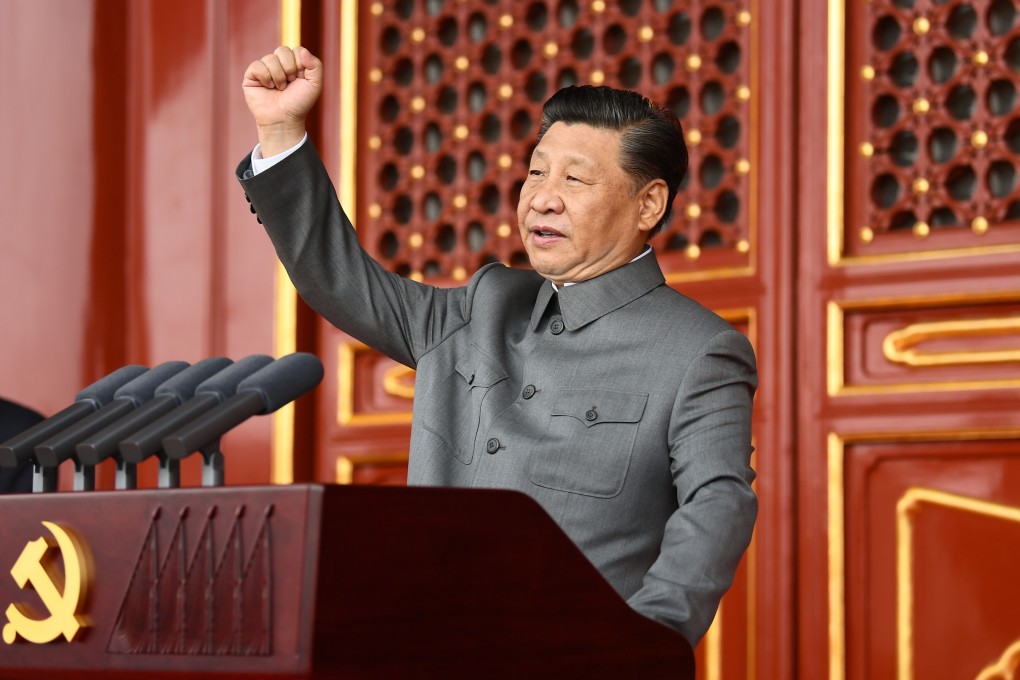Opinion | Was Xi Jinping’s choice of a gory and controversial idiom a message from Beijing?
- Part of the Chinese president’s speech on the Communist Party’s centenary was translated by foreign media as meaning ‘heads cracked and bleeding’
- Words matter, and it might be better for Beijing to project a powerful and ‘unbulliable’ image over presenting itself as ‘lovable’

“Anyone who would attempt to do so will find themselves on a collision course with a great wall of steel forged by over 1.4 billion Chinese people,” Xi said, according to the official English translation of the speech provided by the party to Xinhua.
However, finding “themselves on a collision course” also means “broken heads and bloodshed” in the Chinese language.
So there is little surprise that foreign media translated the expression in ways ranging from “have their heads cracked and bleeding” to “crack their heads and spill blood”, and other similarly gruesome variations.
Even Hu Xijin, editor of China’s nationalistic Global Times tabloid – in a tweet urging “anti-China forces” to “stay calm” – said “anyone who dares try to bully China will get their heads bashed”.
